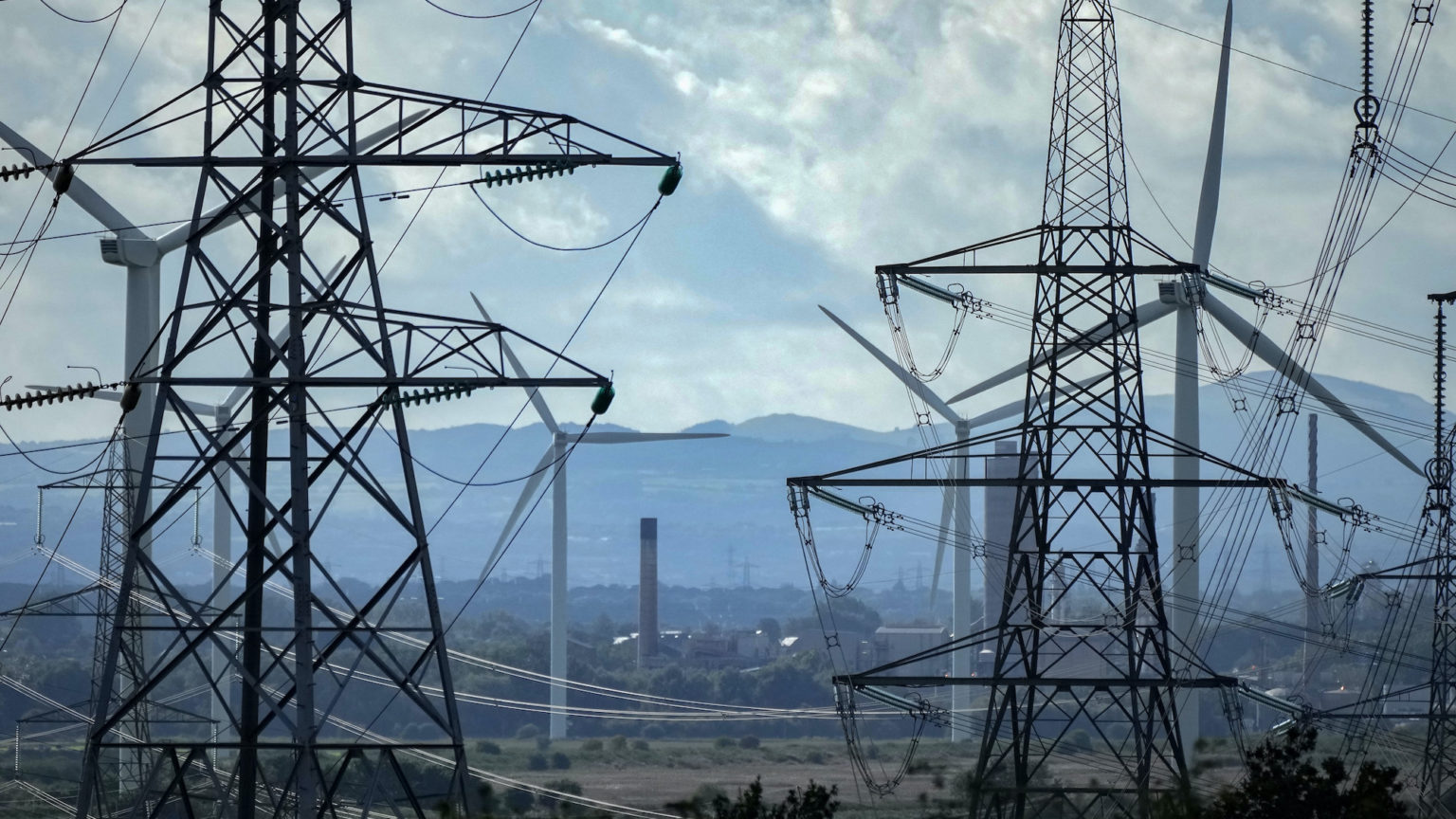We need to talk about energy
Russia’s invasion of Ukraine will cause a major energy shock – and the UK is totally unprepared.

Want to read spiked ad-free? Become a spiked supporter.
When Russia launched its invasion of Ukraine, the UK government immediately thought in high-flown terms of foreign policy. What it didn’t mention is a problem much closer to home. What does all this mean for energy policy, Net Zero and the government’s determination to phase out the production and use of fossil fuels?
Until now, the government has successfully ridden two horses on the subject of energy. It has merrily appeased the green lobby with promises to ditch fossil fuels and end their production domestically. And yet it knows perfectly well that when push comes to shove, it can’t make good on these promises. The replacement energy source just isn’t there. Nuclear might have worked, but successive governments have run it down – nearly half of the UK’s current capacity is due to be retired by 2025. And wind, solar and so on help, but they are expensive, unreliable and take up lots of valuable land.
Without a viable replacement for fossil fuels, if the government were to impose Net Zero, as promised to the green lobby, it would likely cause a cliff-edge drop to most people’s living standards.
Of course, the government could always backtrack on abandoning fossil fuels, seek a compromise and preserve people’s living standards. However, our ability to backtrack on this relies on one key factor: the continued ready availability of coal, oil and gas. You might have thought that a canny government would recognise this and keep our short-term options open by producing as much fossil-fuel energy as possible at home. Other European countries have done just that. Poland, for example, has fought tenaciously to keep open the Turów lignite mine in the face of EU pressure, on the simple basis that if it doesn’t then the lights would go out for millions of Poles.
Unfortunately, in the past few years, the government has succumbed to environmentalist pressure. True, a few traditional energy sources are being quietly opened up or extended – for example, the oil fields at Wytch Farm in Dorset, Horse Hill in Surrey, and the Abigail field off eastern Scotland. But at COP26 the UK pledged to abandon all use of coal, whether home-produced or not, for electricity. Further, having previously encouraged fracking, which, although not ideal, produces fairly large quantities of usable gas, the government earlier this month ordered its abandonment. On Wednesday the parliamentary Climate Change Committee made it clear that it opposed any further licences for North Sea oil production. At the same time the devolved governments have brandished their green credentials, with the SNP turning lukewarm on offshore oil and the Welsh Labour government flatly opposing any expansion of mining in the south Wales valleys.
Before the Ukraine invasion all this could be dismissed as silly green virtue-signalling exercises. After all, if things went seriously wrong with the great green future, we could still buy fossil fuels on the world market as long as we needed to.
But since Russia’s invasion of Ukraine, all bets are now off when it comes to sourcing supplies of hydrocarbons, especially in Europe. The first casualty of the Ukraine debacle was inevitably the Nord Stream 2 pipeline to Germany. At the same time, Brent crude oil hit a high of $104 per barrel. Whatever happens in Ukraine over the next few months, we will not be able to depend on gas and oil supplies from Russia for the foreseeable future. We are therefore increasingly on our own. In an emergency like this, the case for allowing fracking to go ahead is now irresistible, as is that for allowing further offshore gas developments.
What of the environmental lobby? The government must, however painful this may be, face it down. If it doesn’t, and we continue to run down our own fossil-fuel capabilities in order to keep the greens on side, we risk catastrophe in two ways. First, it is increasingly likely that we won’t be able to keep the lights on. And second, the damage to democracy will be immense if the government has to tell very large numbers of working people that they will have to put up with a disastrous drop in their living standards because successive governments, cheered on by a green minority, have closed off potentially more preferable options.
Meanwhile the government needs to say, bluntly, that times have changed, that fracking and offshore oil are unpleasant necessities, and that they will proceed. It must then set about protecting people’s living standards against the shocks of an unstable world. And it must show that it is on the side of the people, and not that of vocal pressure groups.
Andrew Tettenborn is a professor of commercial law and a former Cambridge admissions officer.
Picture by: Getty.
Who funds spiked? You do
We are funded by you. And in this era of cancel culture and advertiser boycotts, we rely on your donations more than ever. Seventy per cent of our revenue comes from our readers’ donations – the vast majority giving just £5 per month. If you make a regular donation – of £5 a month or £50 a year – you can become a and enjoy:
–Ad-free reading
–Exclusive events
–Access to our comments section
It’s the best way to keep spiked going – and growing. Thank you!







Comments
Want to join the conversation?
Only spiked supporters and patrons, who donate regularly to us, can comment on our articles.